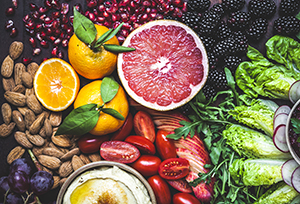 In recent years, the landscape of protein sources has undergone a profound transformation, driven by increasing consumer demand for plant-based and sustainable food options. Vegetable proteins, once considered niche, have now gained mainstream popularity due to advancements in technology and evolving dietary preferences. As formulators and chemists in the food industry, understanding these innovations is crucial for developing innovative products that meet the growing demand for plant-based protein alternatives. Here’s a comprehensive look at the latest advancements in vegetable protein:
In recent years, the landscape of protein sources has undergone a profound transformation, driven by increasing consumer demand for plant-based and sustainable food options. Vegetable proteins, once considered niche, have now gained mainstream popularity due to advancements in technology and evolving dietary preferences. As formulators and chemists in the food industry, understanding these innovations is crucial for developing innovative products that meet the growing demand for plant-based protein alternatives. Here’s a comprehensive look at the latest advancements in vegetable protein:
- Protein Isolation and Concentration:
Advancements in protein isolation technologies have significantly improved the purity and functionality of vegetable proteins. Techniques such as solvent extraction, enzymatic hydrolysis, and membrane filtration allow for the extraction and concentration of proteins from various plant sources like peas, soybeans, rice, and pulses. These methods ensure that the proteins retain their nutritional value and functional properties, making them suitable for a wide range of food applications.
- Functional Properties Enhancement:
Formulators are increasingly focusing on enhancing the functional properties of vegetable proteins to mimic the texture, taste, and mouthfeel of animal-based proteins. Techniques such as microencapsulation, extrusion processing, and enzymatic modification are utilized to improve solubility, emulsification, gelation, and foaming properties of vegetable proteins. These advancements enable the development of plant-based products that closely resemble traditional meat, dairy, and egg-based foods.
- Blending for Improved Nutrition and Flavor:
Blending different vegetable proteins allows formulators to create products with balanced amino acid profiles and enhanced nutritional benefits. For example, combining pea protein with rice protein can achieve a more complete amino acid profile comparable to animal proteins. Blending also helps mitigate off-flavors and improve overall taste, making plant-based products more palatable to a wider audience.
Discover ULTRUS, software to help organizations succeed through safe and sustainable performance. Learn more here!
- Fermentation and Cultured Proteins:
Fermentation technologies are being leveraged to produce vegetable proteins with enhanced nutritional profiles and functional properties. Fermentation not only improves digestibility but also contributes to the development of savory flavors and textures in plant-based products. Additionally, advancements in cellular agriculture are paving the way for the production of cultured proteins from plant cells, offering sustainable and ethical alternatives to traditional animal-derived proteins.
- Sustainability and Environmental Impact:
Vegetable proteins are inherently more sustainable than animal-based proteins, requiring fewer natural resources and emitting lower greenhouse gas emissions. Formulators are focusing on sourcing proteins from non-GMO, organic, and regeneratively farmed crops to further reduce the environmental footprint of their products. Sustainable packaging solutions and efficient supply chain practices are also being integrated to enhance the overall sustainability of vegetable protein-based foods.
- Regulatory and Consumer Trends:
Regulatory bodies are adapting to the growing popularity of vegetable proteins by establishing clear guidelines and standards for labeling, safety, and nutritional claims. Consumer demand for clean-label products and transparency in ingredient sourcing is driving manufacturers to prioritize natural and minimally processed vegetable proteins.
The advancements in vegetable protein technology are revolutionizing the food industry, offering formulators and chemists unprecedented opportunities to innovate and meet the diverse dietary preferences of consumers. By leveraging these advancements, you can develop plant-based products that not only deliver on nutritional quality and sensory attributes but also contribute to sustainability and environmental stewardship. Embrace innovation, collaborate with ingredient suppliers, and stay informed about emerging trends to stay ahead in the competitive landscape of plant-based foods. Together, we can pave the way towards a more sustainable and protein-rich future for the global food supply.
The views, opinions and technical analyses presented here are those of the author or advertiser, and are not necessarily those of ULProspector.com or UL Solutions. The appearance of this content in the UL Prospector Knowledge Center does not constitute an endorsement by UL Solutions or its affiliates.
All content is subject to copyright and may not be reproduced without prior authorization from UL Solutions or the content author.
The content has been made available for informational and educational purposes only. While the editors of this site may verify the accuracy of its content from time to time, we assume no responsibility for errors made by the author, editorial staff or any other contributor.
UL Solutions does not make any representations or warranties with respect to the accuracy, applicability, fitness or completeness of the content. UL Solutions does not warrant the performance, effectiveness or applicability of sites listed or linked to in any content.
